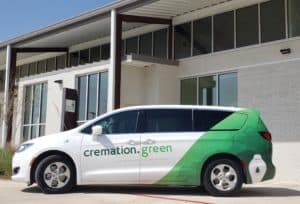Do a quick Google search for “cremation near me” and you may be surprised at all of the options. You probably had no idea so many options existed in your area. That’s because the funeral homes may not be exactly what you envisioned. Some of those cremation providers may not even be located in your state.
The funeral industry has undergone a lot of changes lately, which has affected how families find and compare crematoriums. There are more options than ever, which means there is more to consider. To help families cut through the confusion our team has outlined five essential steps to cover when you’re searching for and comparing funeral homes in your area.
Don’t Be Fooled by Cheap Cremation Offers
Here’s the thing about funeral homes that are advertising super cheap cremation rates. Rarely is the price that’s advertised the final cost. Some crematoriums will advertise a low base rate that quickly inflates with added expenses and fees.
Remember, that the cremation rates you see online are usually just a starting point. To get a better estimate of the actual cost you’ll need to call the funeral home and request a General Price List that is customized and itemizes all of the expenses. The Federal Trade Commission (FTC) Funeral Rule mandates that funeral homes must provide the General Price List upon request. However, you’ll need to be on the lookout for items that have a price range and assume that the charge will be at the higher end of the range.
Of course, there are providers like Cremation.Green that offer affordable cremation with no strings attached. You can use our price checker tool to get an online quote for funeral services that is customized to your needs. We’re also happy to provide more pricing details over the phone or by email.
Ensure Funeral Homes Are Licensed in Your State
To legally operate, a funeral home must be licensed by the state and have the proper permits to cremate. There will be a state licensing commission that should be able to verify a funeral home’s license status. If the information isn’t posted online showing that the funeral home’s license is current and valid, reach out to the licensing agency for verification. You can also ask the funeral home to provide the license information so that you can cross reference everything.
Texas is a state that makes it easy for families to ensure the funeral home they select is licensed. In the Lone Star State the Texas Funeral Service Commission handles all licensing and renewals. The Commission has a license search tool that makes it easy to look up a funeral home’s information by the business name or license number.
Check on Complaints
Something else that the state typically handles are complaints against a licensed funeral home. These should be made public so that consumers can see what the complaint was about, when it was made and the verdict. Some infractions are so serious the funeral home could lose its license.
You’ll want to only consider funeral homes that have a solid reputation and long track record with few to no complaints. It’s also a good idea to look at the funeral home’s Better Business Bureau (BBB) rating as well as online reviews from past clients. You can go one step further and ask the funeral home for a few referrals. This is an especially good idea if you are looking for specialty services like water cremation.
Local Funeral Homes Versus Franchise Funeral Homes
Today there are two types of funeral homes: local, family-owned establishments and franchise businesses. Franchise funeral homes might be able to offer cheap cremation, but you may be sacrificing customer service. Another thing to consider is that local, family-owned funeral homes are a part of the community. The owners and people working at the funeral home have a very good understanding of what locals are looking for and the type of service they expect to receive.
Another thing to consider is that franchise funeral homes often have services, products and protocols that are set by a national office and can’t be changed. The individual franchises have little control, which means they often can’t meet special requests.
If standard services are acceptable, then a franchise crematorium is worth considering. But if you want more personalized customer service and flexibility to handle special requests, then a local family-owned funeral home is probably the better option.
The Carbon Footprint of Cremation Services
Now that we know traditional funeral services have a serious impact on the environment, more people are prioritizing funeral services that are eco-friendly. It’s one of the many reasons why cremations are now more common than burial.
The issue is any funeral home can claim that their services are eco-friendly or green because using those terms isn’t regulated. It’s up to consumers to find out if the funeral home’s procedures actually do lower the carbon footprint of funeral services. A simple way to do this is to ask the funeral home to provide details on how they reduce carbon emissions and increase energy efficiency. Funeral homes that can’t tell you what makes their services eco-friendly are likely providing standard services that are simply marketed as green.
The types of disposition that are offered will give you a better idea of how eco-friendly a funeral home is. Some types of disposition are known to be more eco-friendly than other options regardless of the exact procedures the funeral home follows. For instance, natural organic reduction actually produces nutrient-rich soil rather than polluting the ground, and is now considered the greenest funeral service available.
If you want to work with a highly reputable, local funeral home in Texas that offers the best selection of eco-friendly disposition services contact the Cremation.Green team. We’re proud to not only be the first carbon-neutral funeral home in Texas but also an advocate for disposition freedom that gives families more options.





